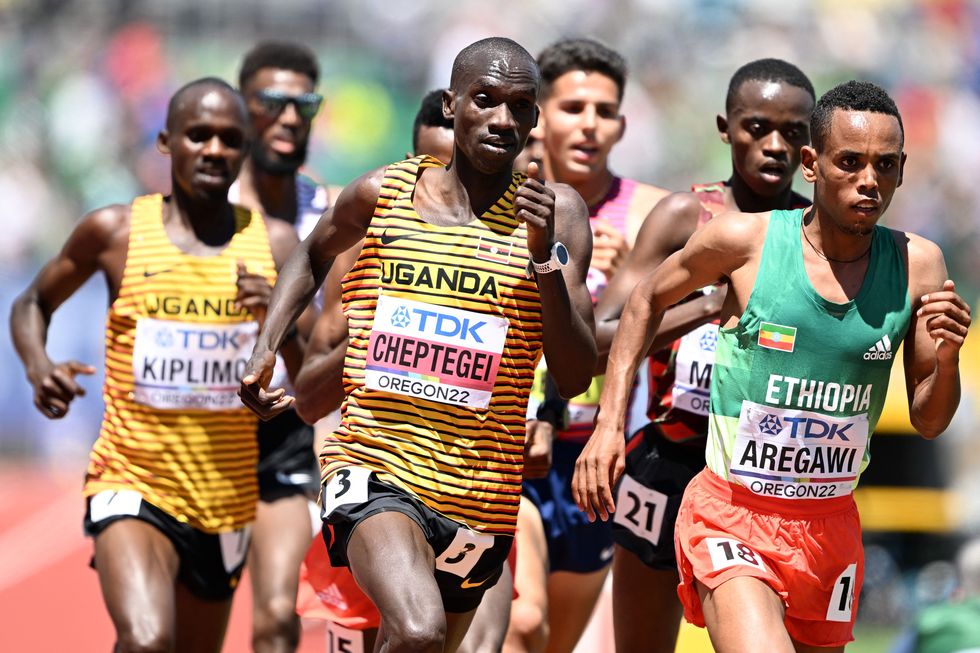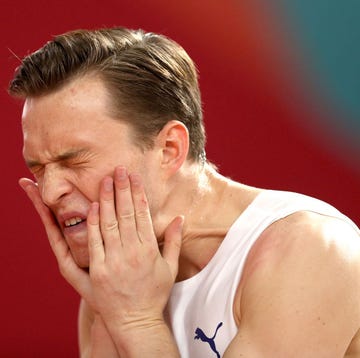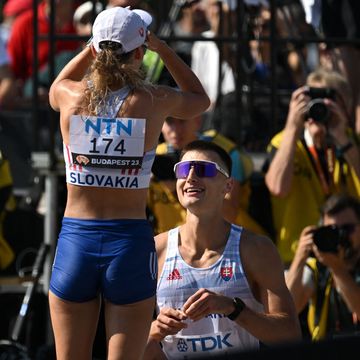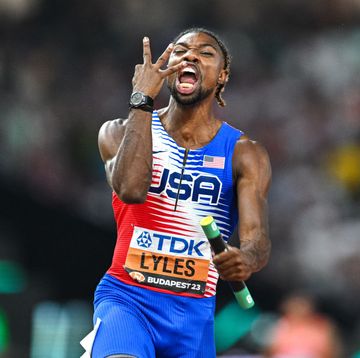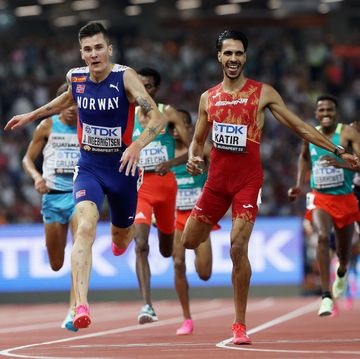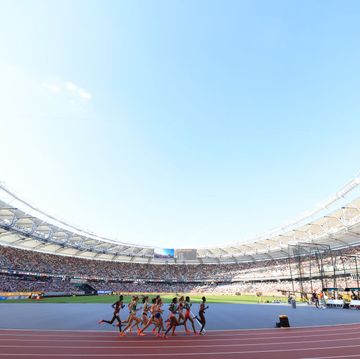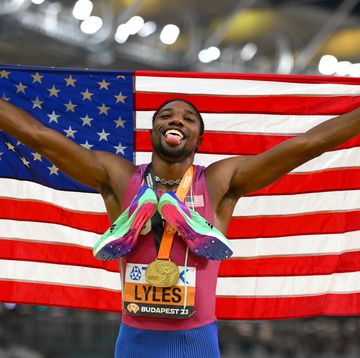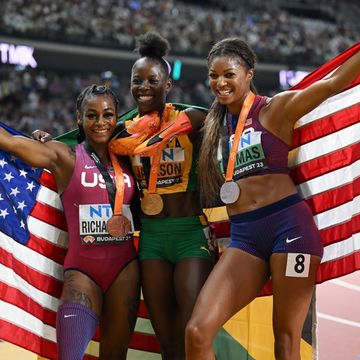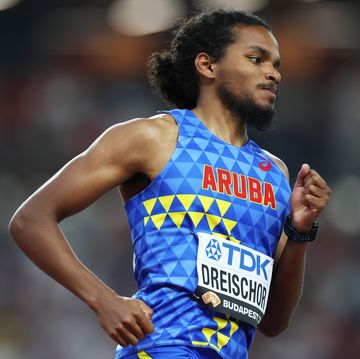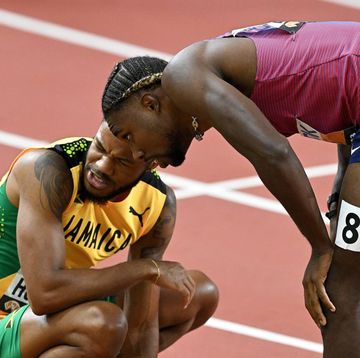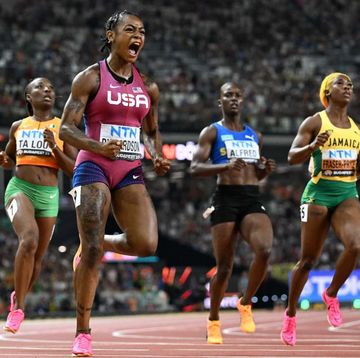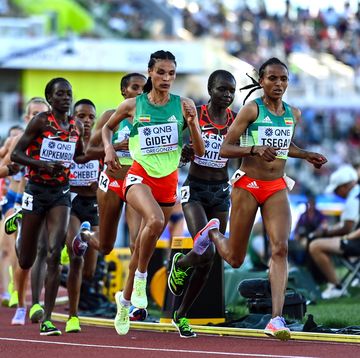World record-holder Joshua Cheptegei of Uganda blasted a 53.4-second final lap to successfully defend his world 10,000-meter title in 27:27.43.
Kenyan Stanley Mburu, who fell on the first lap, was second in 27:27.90, and Jacob Kiplimo of Uganda took the bronze in 27:27.97.
U.S. record-holder Grant Fisher placed fourth in 27:28.14, equaling the best placing in this event by an American man. U.S. champion Joe Klecker placed ninth in 27:38.73. The third American, Sean McGorty, placed 12th in 27:46.30.
Last year’s Olympic champion, Selemon Berega of Ethiopia, tried to outsprint Cheptegei over the final 250 meters, but tied up, and fell back to finish fifth in 27:28.39. In all, the first five men finished within less than a second of each other.
“Mixed emotions on the outcome,” Fisher said. “Very, very happy to be fourth place in a very deep final. I gave everything I had out there. But when you come that close the top three, it stings a little bit. You think back and you think of the what ifs, what if you change this or that. I’ll think about this one for a while. The U.S. is coming on strong in the 10K, and I’m happy to be part of it. And I don’t want to scoff at fourth place. But you see the medals right in front of you with 50 meters to go and you’re agonizingly close. But, coming back into 5K. So hopefully can use this as a little motivation.”
How the Race Was Won
The early pace was steady but not particularly fast (around 27:45 10K pace through 3 kilometers). Perhaps the unusual start time (1:00 p.m. Pacific), bright sun, and temperatures in the high 70s inspired caution.
“Going off the conditions of yesterday when the women did the 10K, we thought that maybe today would also have perfect weather like that,” Cheptegei said. “But then we had to change the strategy.”
When Cheptegei and his compatriot Stephen Kissa moved to the front in the eighth lap of 25, other big names reacted, likely thinking the real racing was about to start.
Instead, the pace remained moderate, and even slowed a bit. The field passed halfway in 14:01. Soon after, Kiplimo, the half marathon world record-holder, went to the front. He ran a 64-second 14th lap, which was three to four seconds faster than the previous several laps. Another 64-second circuit started to drop early hangers-on. With Cheptegei then resuming the lead, last year’s three Olympic medalists were running 1-2-3.
But then the pace slowed to its previous tempo. The pack rebunched and was 15 strong with just four laps to go. Two 64-second laps finally started to cause some real damage, and a penultimate lap of 60 did some more, but there were still eight men together with one lap to go.
Cheptegei surged into the first turn of the last lap. Despite furious efforts by Barega, and then Mburu, the world record-holder held his form, and lead, to the line.
“I realized that I still had a lot of energy in my legs and no fatigue,” Cheptegei said. “So I said to myself, if I can be in position to control the last lap and keep on making it harder and harder, then it was going to pay off. It was incredible to win within an incredible field.”
Fisher, who had been seventh with 250 meters to go, flew past Olympic champion Barega just before the line to take fourth. Fisher’s placing equals that of Galen Rupp’s from 2013 as the best finish by an American man in this event at a world championship.

Scott is a veteran running, fitness, and health journalist who has held senior editorial positions at Runner’s World and Running Times. Much of his writing translates sport science research and elite best practices into practical guidance for everyday athletes. He is the author or coauthor of several running books, including Health - Injuries, Advanced Marathoning, and Shoes & Gear. The world record-holder repeats as winner; American Grant Fisher gets fourth Slate, The Atlantic, the Washington Post, and other members of the sedentary media. His lifetime running odometer is past 110,000 miles, but he’s as much in love as ever.

